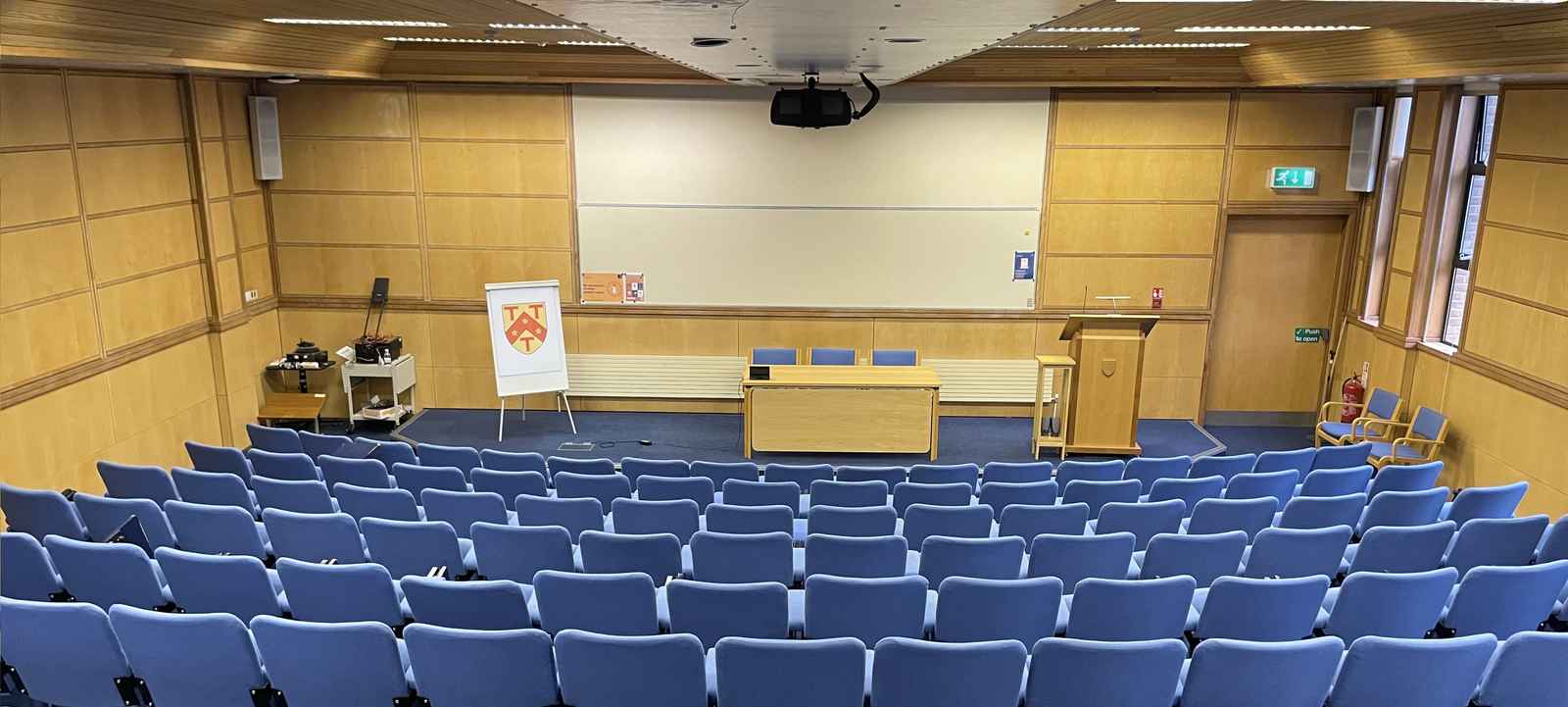Seminar Options
Students take one course from the following.
Critical Approaches to African Politics
There is a long history of misunderstanding the politics of African countries. This course challenges these myths and introduces a range of critical approaches to understanding governance and development related issues, with a particular focus on Southern, East and West Africa. Seminars are designed to debate issues such as:
- the politics of race and ethnicity
- ‘development’, culture, and ‘modernisation’
- natural resources and the ‘resource curse’
- colonialism and its legacies
- post-colonial states and civil conflict
- democratisation, civil society, and social movements
- gender, youth, and democracy
- land, reforms, and agrarian issues
- climate change and conservation
Tutor: Doris Okenwa is a Lecturer in African Studies and a Fellow in African Anthropology at the African Studies Centre, University of Oxford. A social anthropologist by training, her research interests include the politics of oil extraction. This work advances both an epistemic and empirical critique of the global ethics of extractive industries and their intersection with moral economies, national development and distributive politics. She is the co-author of Land, Investment & Politics: Reconfiguring Eastern Africa's Pastoral Drylands and is currently working on her forthcoming monograph Impermanent Development: The ‘Promise’ of Oil and Distributive Politics in Kenya. Other interests include an emerging project on ‘Alternative Politics in Africa’ focused on emerging voices and demographic changes. Prior to academia, Doris worked as a professional journalist in Nigeria and the UK.
Making Sense of Chinese Politics and China’s Global Ambitions
The rise of China is one of the most compelling aspects of international politics. China’s rapid economic, political and social development has made inevitable China’s rise to global power status. As the world’s second largest economy and growing diplomatic presence in international affairs, China’s global ambitions and imprint are coupled with dynamic transformations within Chinese domestic politics and society. This course will enable students to acquire a knowledge of the contemporary politics of China and its diplomatic ambitions and engagements. Students will gain an understanding of:
- the transition of China’s domestic politics and society
- the institutional dynamics of China
- theoretical and practical knowledge about China’s foreign policv
- the actors, mechanisms, processes, and practices of China’s diplomacy
- the economic, climate and security dimensions of China’s international relations
- the relationship between China, the US, and the EU
Tutor: Lucie Qian Xia is a Departmental Lecturer in the Politics and International Relations of China. She holds a DPhil from the University of Oxford, previously taught Chinese diplomacy and global governance at Sciences Po Paris, and was the postdoctoral China Policy Fellow at the London School of Economics and Political Science. Prior to academia, Lucie worked at the Delegation of the European Union to China in Beijing and the UN Representation Office to the EU in Brussels. She is the author of The Diplomatic Making of EU-China Relations: Structure, Substance and Style.
European Union Politics
The creation of the European Communities in the 1950s marked the beginning of a bold new experiment in Europe. Today, the European Union represents the most advanced example of regional integration. The EU has not only transformed policy-making in Europe in profound ways, it has also emerged as an important international actor. This course explores the history of European integration, the institutional set-up of the European Union and key policies including EU Enlargement and Common Foreign and Security Policy. It also focuses on democratic backsliding in the EU and the future of European integration. It will examine questions such as:
- what role do treaties play in developing European integration?
- is there a democratic deficit in the EU?
- what kind of power is the EU?
- what are the limits to the EU’s transformative power?
- can the EU counter democratic backsliding?
Tutor: Eli Gateva is a Lecturer in European Union Politics in the Department of Politics and International Relations at Oxford. She has held academic posts at the University of Manchester, Queen Mary University of London, University of York, and University of Nottingham and is a Fellow of Advance HE. She is the author of European Union Enlargement Conditionality, and recently contributed to The Oxford Encyclopedia of European Union Politics. Her current research explores if and how the EU can enhance the quality of democracy in EU member states.
Latin American Political Economies: Past, Present, and Future
Inequality, violence, and corruption are but a few of the economic, social, and political challenges faced by countries across Latin America. Adopting a multidisciplinary perspective, this course will examine how politicians, institutions, and the international arena have shaped past and contemporary social outcomes in the region. As such, this course provides the analytical tools to examine topics such as:
- colonial origins and post-colonial development
- Latin America after independence: the roots of institutional weakness
- democracy and autocracy in the 20th century
- developmental models, volatility, inequality, and the aftermath of Covid-19
- territorial unevenness: subnational units, a new frontier?
- party systems and party collapse
- populism, radicalisms, and democratic backsliding
- governance and Corruption
- security, violence, and organized crime
- Latin America and world politics
Tutor: Javier Pérez Sandoval is a British Academy Postdoctoral Fellow at the Department of Politics and International Relations (DPIR). He was previously a Departmental Lecturer in Latin American Studies at the Oxford School of Global and Area Studies (OSGA), and a Visiting Fellow of the Kellogg Institute at the University of Notre Dame. Javier received his DPhil from the University of Oxford. His research looks at the dynamics linking socio-economic development and political regimes at the subnational level. Javier’s work has been recognized by the American Political Science Association (APSA), the European Consortium for Political Research (ECPR) and has been published in Democratization, Alternatives, Agenda Política, and Perfiles Latinoamericanos.
Politics in the Middle East and North Africa
It is not uncommon to encounter discourses presenting the Middle East and North Africa as an exceptional region, whose politics stands out from ‘regular politics’. This course studies politics in, rather than of, the Middle East and North Africa. It explores the modern history of this region, notably the debates on the resilience of authoritarianism, through a conceptual and interdisciplinary approach. It invites students to question what is behind exceptionalising discourses by looking at the development of various ideologies, national and transnational movements, ethnic conflicts, political institutions, and economic policies. The course encourages students to engage in theoretical debates and aims to empower them to use, challenge, and redefine political concepts to best describe the political realities of the region. The course adopts a thematic approach, examining topics such as:
- colonialism and its legacy
- nation, nationalism, and nation-building
- Islamism
- Sectarianism
- the state and its political and economic institutions
- authoritarianism
- civil society
- democratisation
- gender
- the Arab Uprisings and the counter-revolution
- rethinking the Middle East and North Africa
Tutor: Kaoutar Ghilani is the Abdullah Al-Mubarak Research Fellow in Middle Eastern Studies at Pembroke College, University of Cambridge. She completed her DPhil at Lady Margaret Hall, University of Oxford, as an Ertegun scholar. She was a post-doctoral fellow of the Europe in the Middle East programme at the Forum Transregionale Studien in Berlin, a tutor of ‘Politics in the Middle East’ at Oxford and a visiting researcher at the Centre Jacques Berque in Morocco. Kaoutar is currently preparing a monograph on language politics and nation-building in Morocco. Her research has been published in the British Journal of Middle Eastern Studies, the Journal of North African Studies, the Bulletin of Francophone Postcolonial Studies, and the Review of Middle East Studies.
Power, Resources and Political Identity in Russia and the Former Soviet Union
The fifteen post-Soviet states that emerged from the collapse of communism faced similar challenges in 1991. Yet, their political trajectories have differed significantly over the last quarter of a century. This course explores the reasons for this variation in post-communist political development. Focusing on the non-EU states of the former Soviet Union – Russia and the Eastern European (Belarus, Moldova, Ukraine), Central Asian and Caucasus states - it will explore topics such as:
- the factors that determined the collapse of communism and their legacies
- the types of political regimes that have emerged and their institutional dynamics
- the nature of property ownership
- the sources of conflict: elite, ethnic and clan
- the political consequences of the oil curse and corruption
- the influence of Russia on regional political developments.
Tutor: Paul Chaisty is Professor of Russian and East European Studies at St Antony's College, Oxford. His publications include Legislative Politics and Economic Power in Russia; Coalitional Presidentialism in Comparative Perspective: Minority Executives in Multiparty Systems; and articles in journals such as Electoral Studies, Europe-Asia Studies, European Journal of Political Research, Government and Opposition, The Journal of Legislative Studies, Legislative Studies Quarterly, Party Politics, Political Research Quarterly, Political Studies and Post-Soviet Affairs.
People, Power and Politics in Contemporary South Asia
How should we go about studying the political aspirations and agency of almost two billion people in South Asia, governed by contradictory and unstable regimes, where religion, language, caste, class, gender, and other identities unite and divide such vast populations? This course takes an interdisciplinary approach to learning about South Asia’s politics, societies, and relationship with the world, and will explore the various strategies employed to bring about social, political, and economic transformations in the region. We will examine key topics of contemporary relevance in South Asian politics such as:
- drivers of democratic backsliding and authoritarianism
- economic growth and rapid social change
- the project of ‘development’
- variation in, and evolution of, ethnic and religious nationalism
- the impact of domestic politics on inter-state rivalries
- the role of external powers in regional and domestic politics
- social movements and popular mobilisation
Tutor: Thiruni Kelegama is a Departmental Lecturer in South Asian Studies at the Oxford School of Global and Area Studies, and a Junior Research Fellow at Wolfson College. Her research is focused on the politics of development, infrastructure, militarisation, and nationalism, with a focus on South Asia. Thiruni's publications include articles published in Modern Asian Studies, Journal of Peasant Studies, and Antipode. She is presently working on a book manuscript titled Central Margins: Sri Lanka’s Violent Frontier.



